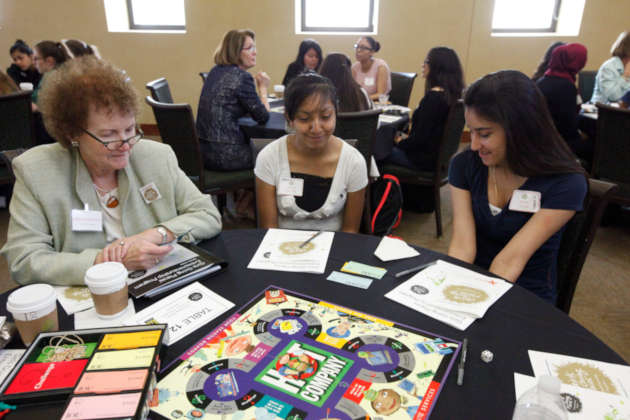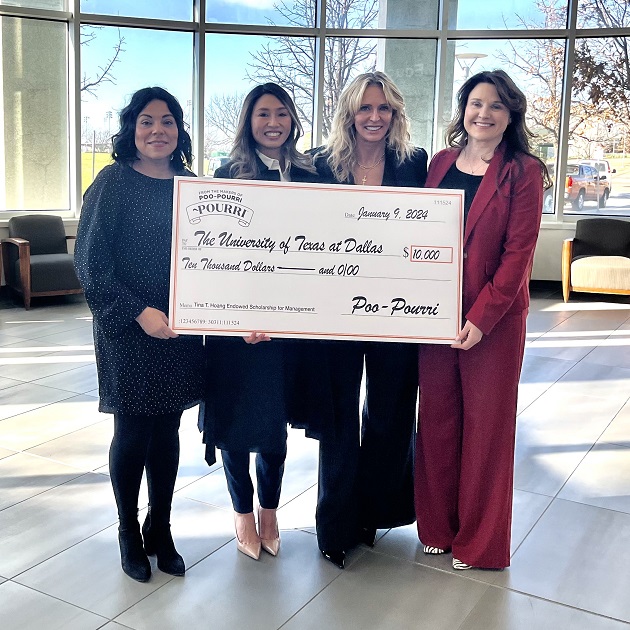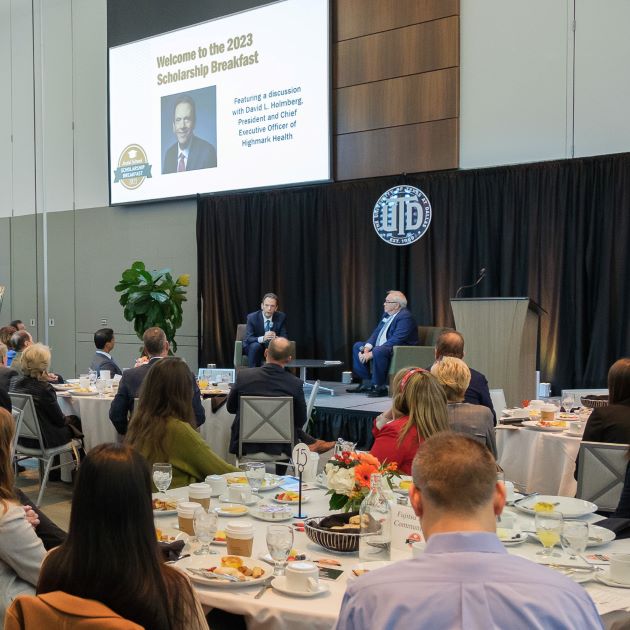
A free event this spring for junior high school girls offers hands-on experience in developing a financially sound future. This event, in the Naveen Jindal School on The University of Texas at Dallas campus, reaches girls well before most have started to think about college or what their futures might hold.
Girls Going Places is a one-day program based on a national curriculum that focuses on financial literacy and entrepreneurship. By playing games, junior high girls learn about the possibilities and pitfalls of starting a business. Since first offered at the Jindal School in 2015, the program has filled every participant seat. A few seats remain available for the free program this year on April 24. RSVPs are required. Professional businesswomen volunteer for the day to serve as mentors.
Earlier this spring, Jindal School hosted the new STEM Symposium for G.I.R.L.S., a two-day event in which 60 junior high girls learned about the exploding field of information technology, from women in the field. High-Tech High Heels, which aims to close the gender gap in science, technology, engineering and math, underwrote the conference .
Girls Going Places is underwritten by Capital One. Women are underrepresented in the entrepreneurial field, according to the National Women’s Business Council, with a bit more than 36 percent of businesses in the U.S. owned by women. According to the council, Texas ranks second in the nation for the highest number of women-owned firms, with more than 866,700. That number accounts for almost 9 percent of all women-owned businesses nationwide. (California tops the nation with 1.3 million women-owned businesses, representing 13 percent of the women-owned businesses in the U.S.)
“As part of our Future Edge initiative, we are committed to helping women and girls expand the skills, tools and resources they need to succeed in the 21st century,” said Shafiq Kassam, vice president for software engineering with Capital One. “Capital One is proud to be the sponsor of the Girls Going Places event as well as the Institute for Innovation and Entrepreneurship at UT Dallas. Through these courses, young entrepreneurs can broaden their creativity and technical abilities today to be the inventive pioneers of tomorrow.”
Research shows that as young as age 6, girls start believing they are not as smart as their male peers. And in early elementary school, they are less likely than boys to say that their own gender is “really, really smart,” and less likely to opt in to a game described as being for super-smart kids.
“Women in STEM begin with girls in STEM,” said Dr. Dawn Owens, director of the BS in Information Technology and Systems program at Jindal School. She organized and hosted the IT program for junior high schoolers. “When I was in college I originally thought I was interested in accounting because I liked solving problems and working with numbers. I was also very interested in using computers to support business. … A very wise advisor introduced me to the field of information technology and systems — a technical degree in the business school.”
According to a 2016 U.S. Census Bureau report, the percentage of women in information technology careers in the U.S. has actually declined from a peak of about 31 percent in 1990. Now, about 25 percent of IT professionals are female, and their earnings statistically lag behind men’s earnings regardless of what IT area they are in.
“This UT Dallas camp was interesting to us for two reasons. For one, it’s the first program we’ve seen that is targeted to IT, and we think it’s great for girls to be introduced to IT careers,” said Laura Steffek, a High-Tech High Heels board member who leads its grant committee. “For another, this is a program for middle-school girls. We know that middle school is a time when girls start leaking out of the STEM pipeline, and it’s important to reach out to girls at this age.”





